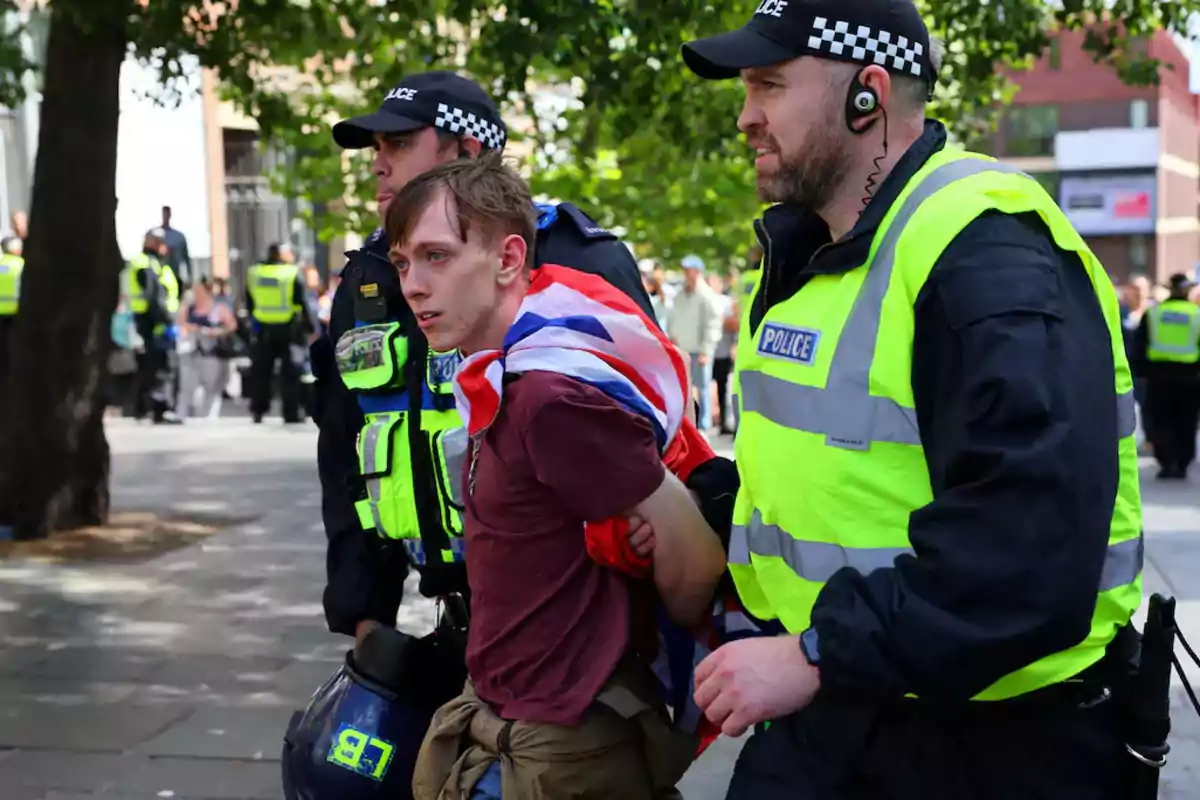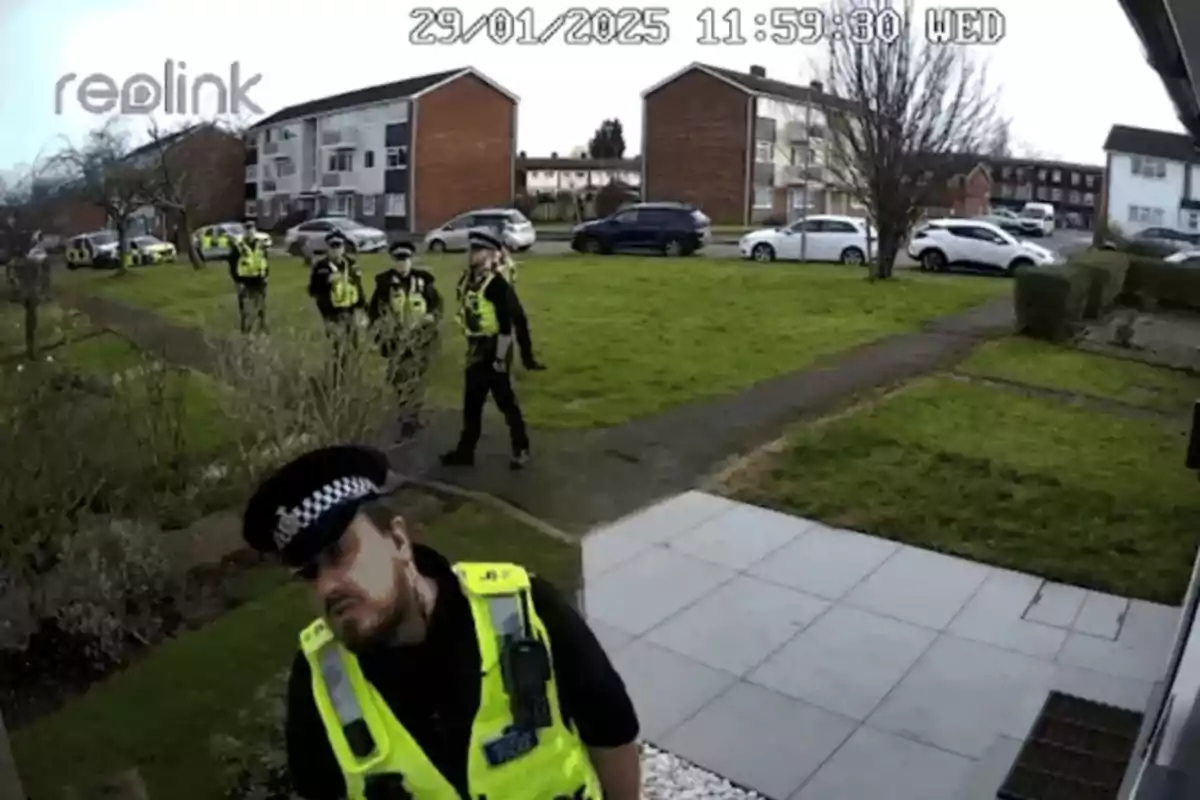
More than 30 people per day are arrested in the United Kingdom for expressing themselves freely
These arrests are based on authoritarian laws that classify sending 'offensive' messages as a crime
In the United Kingdom, a recent investigation revealed that more than 30 people are arrested every day for "offenses" related to freedom of expression, which amounts to about 12,000 arrests per year.
These arrests are based on authoritarian laws that criminalize sending "grossly offensive" messages or sharing "indecent, obscene, or threatening" content.
In recent months, social media has been filled with videos showing British police officers forcibly entering people's homes in the middle of the night, taking people into custody simply for making posts on Facebook or messages on X.
For example, Maxie Allen, a radio producer from Hertfordshire, was on a Zoom video call from his home when he saw the police standing behind him. Six officers knocked on the door and his partner, Rosalind Levine, opened it, thinking there was an emergency, only for both of them to be arrested due to comments made in a private WhatsApp group intended for parents at their children's school.

In that conversation, classified as a "crime" according to British authorities, the couple had repeatedly questioned the public school's slowness in appointing an interim principal.
"This has shaken my confidence in the country I thought I lived in. I never thought that expressing opinions about the management of an institution and holding public officials accountable could lead to my arrest," Allen, 50 years old, told the media.
There are numerous similar cases. In 2018, a man who identified himself as "Adam" called British radio LBC to recount his encounter with the police earlier that year. "I'm Asian and I drew a picture of a friend of mine, who is also Asian, and I said: 'You look like a terrorist.' He thought it was funny," he told the station.
However, another person saw the drawing, was offended, and called the police. Months later, Adam and his friend were summoned to testify before the authorities, even though the friend stated that he had laughed at the drawing and was not offended. Even so, the police recorded a "non-crime hate incident" and forced Adam to send a letter of apology by email.

Last October, Adam Smith-Connor, a 51-year-old army veteran, was convicted and fined12,000 dollars for praying silently outside an abortion clinic in Dorset. In April, French philosopher Renaud Camus, a critic of mass illegal immigration, was banned from entering the United Kingdom, where he was scheduled to give a speech. The list goes on and on.
The United States' response
These cases became so controversial that they caught the attention of the United States, which is taking a firmer stance against censorship in Europe. In February, during a speech at the Munich Security Conference, Vice President JD Vance strongly criticized the "censorship crisis" taking place in the United Kingdom.
A few weeks ago, the US State Department's annual Human Rights Report highlighted the "serious restrictions on freedom of expression" imposed by British authorities, indicating that the "human rights situation worsened" in the past year, and criticized laws such as the 2023 Online Safety Act.
"We consider freedom of expression an essential component for the functioning of a democracy," State Department press secretary Tammy Bruce told reporters, calling the British government's measures "intolerable in a free society."
More posts: